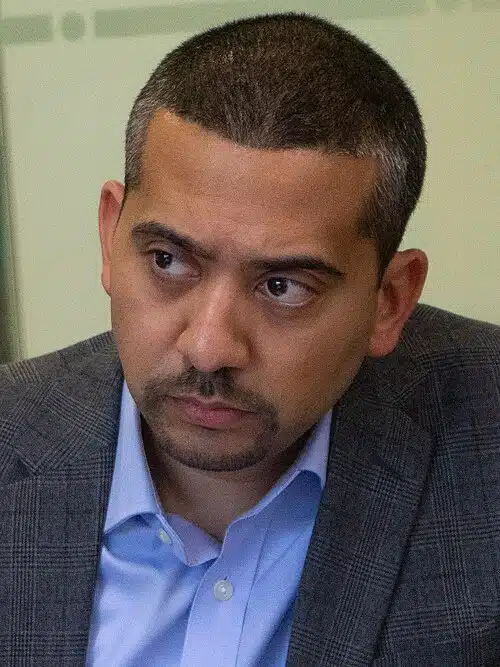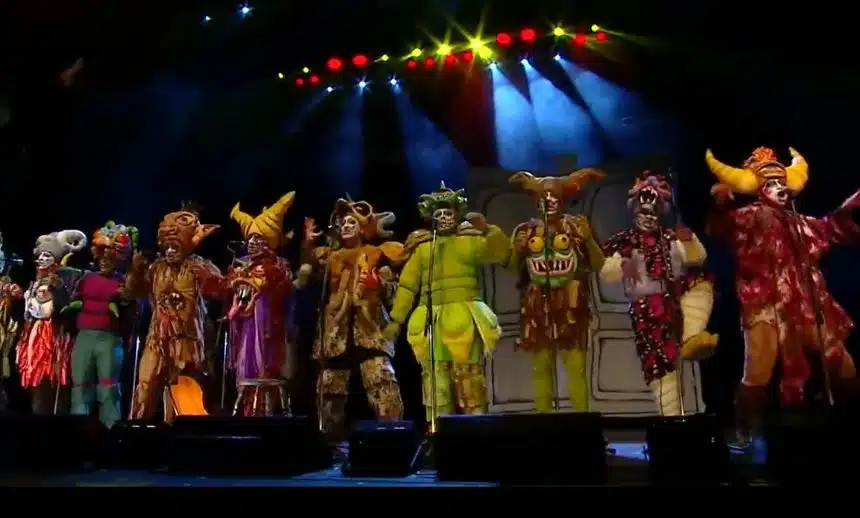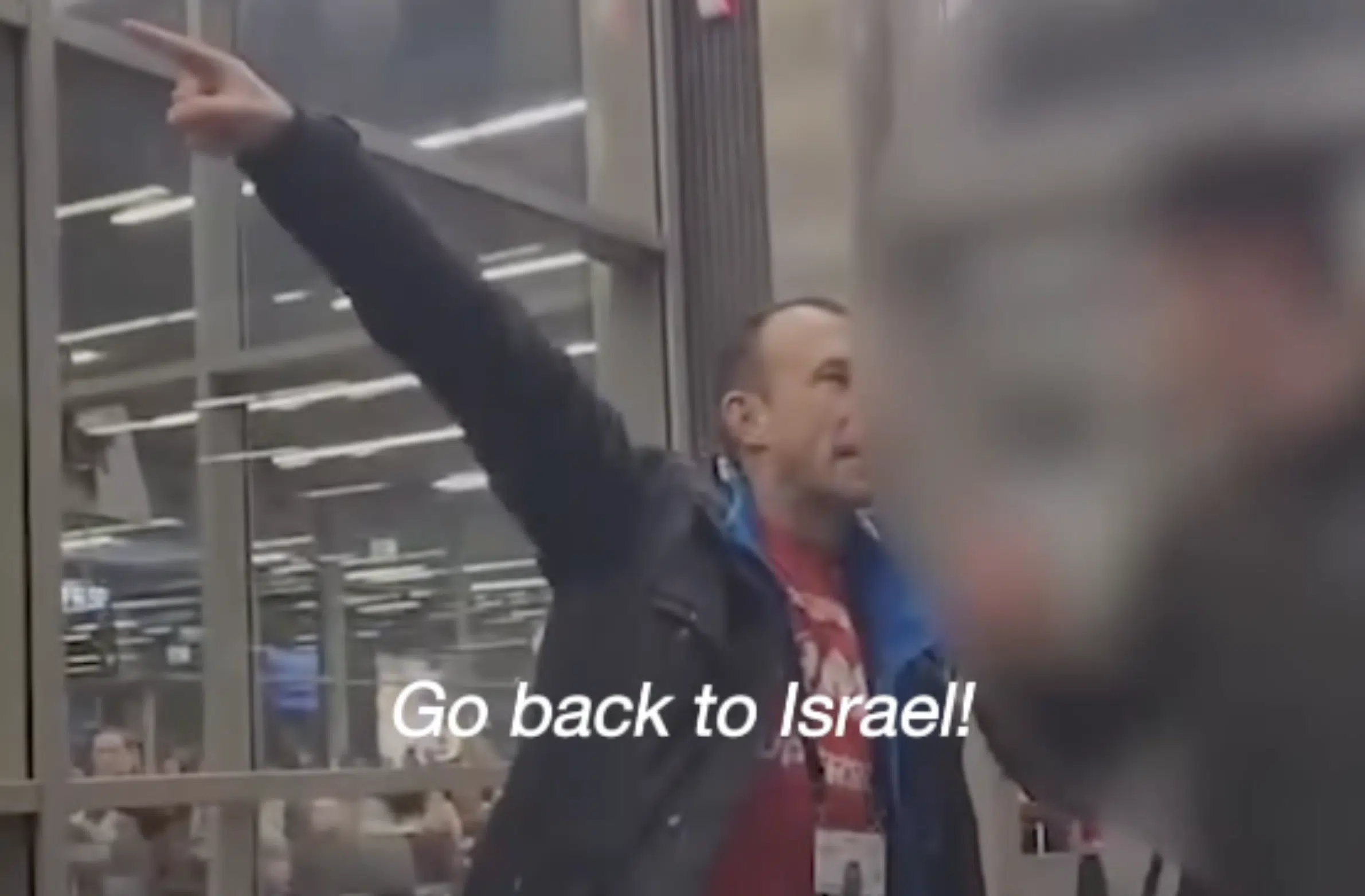|
Getting your Trinity Audio player ready...
|
British-American journalist Mehdi Hasan faced intense backlash this week after claiming the so-called “Gaza genocide” was “worse” than the Holocaust in a post later deleted from X.
In the post, Hasan wrote, “One of the ways in which the Gaza genocide is worse than a lot of previous genocides – Rwanda, even the Holocaust – is that you didn’t have Hutus or Nazis mocking the genocide after it was over. They were shunned/deradicalized/prosecuted.”
The comment spread rapidly online, with critics denouncing Hasan for equating Israel’s defensive war against Hamas with the Nazi extermination of six million Jews. Many said the comparison was false, inflammatory, and deeply offensive to Holocaust survivors and their families.
“Have You Lost Your Mind?”
Hasan’s post came in response to journalist Eli Lake, who mocked extremist rhetoric about “a genocide against the indigenous tunnels of Gaza.” Instead of ignoring the comment, Hasan responded with language that shocked readers across the political spectrum.
British broadcaster Piers Morgan was among the first to react, replying, “Have you lost your mind?” His post quickly went viral. Consequently, journalists and commentators accused Hasan of trivializing Jewish suffering and weaponizing Holocaust memory for political gain.
From Apology to Defiance
Following the uproar, Hasan deleted his post and issued a clarification. He admitted that he had expressed himself “clumsily,” yet refused to retract the comparison. Moreover, he claimed critics were engaging in “bad-faith attacks.”
“There was no offense meant to the Jewish community,” Hasan wrote. “I abhor and condemn all genocides, unlike those pro-Israel politicians and journalists who defend or, worse, deny the current Gaza genocide. Shame on them.”
His clarification only deepened the controversy. Observers argued that his response reflected defiance, not remorse, and reinforced his pattern of inflammatory anti-Israel rhetoric.
The Weaponization of “Genocide” Against Israel
The term genocide was coined in 1944 by legal scholar Raphael Lemkin, a Polish Jew who sought to define the Nazi campaign to annihilate the Jewish people. After the Holocaust, the word became inseparable from the effort to prevent future mass atrocities.
Today, using that same term to accuse Israel — the world’s only Jewish state — of genocide turns history on its head. It exploits a word born from Jewish suffering to vilify Jews defending themselves. Furthermore, it reframes moral reality by blurring the line between victim and aggressor.
This distortion is not accidental. Across international discourse, “genocide” and similar accusations are often deployed to delegitimize Israel’s existence and erase the context of its fight against terrorism. The result is moral inversion — portraying Jews not as survivors of genocide, but as its alleged perpetrators.
Why Hasan’s Comparison Violates the IHRA Definition
The International Holocaust Remembrance Alliance (IHRA) Working Definition of Antisemitism sets clear parameters for identifying antisemitic rhetoric. Among its examples is “drawing comparisons between Israel and the Nazis.” Hasan’s statement fits squarely within this category.
By suggesting Israel’s actions are worse than Nazi crimes, Hasan crosses a clear red line. His words equate a nation founded to protect Jews from annihilation with the regime that sought their extermination. Therefore, his argument denies Jewish history, distorts truth, and meets the IHRA threshold for antisemitism.
The IHRA framework helps distinguish legitimate criticism from hate speech. It rejects rhetoric that demonizes, delegitimizes, or applies double standards to Israel. Hasan’s remarks embody each of these elements.
The IHRA Working Definition of Antisemitism does more than safeguard historical truth — it provides a clear, shared standard for identifying and confronting antisemitism in all its forms. Its strength lies in consistency. By giving policymakers, educators, and institutions a common language, it helps ensure that antisemitic acts and rhetoric are recognized and addressed wherever they appear.
When public figures distort Holocaust memory or weaponize terms like “genocide” against the Jewish state, they not only rewrite history but also endanger Jewish communities today. Such rhetoric fuels hostility, undermines safety, and spreads antisemitic narratives under the guise of political critique.
Applying the IHRA definition offers clarity and accountability. It separates legitimate debate from incitement and provides the foundation needed to protect Jewish life and preserve truth simultaneously.
Moral Clarity Matters
Mehdi Hasan’s comments reveal a growing danger — the erosion of truth through reckless language. The misuse of “genocide” against Israel is not simply misguided; it is an act of moral inversion.
By applying the IHRA Working Definition of Antisemitism, institutions and individuals can expose this rhetoric for what it is: an attempt to vilify the Jewish state by twisting the memory of Jewish suffering.
Ultimately, words shape understanding. When they are distorted to target Jews, they do not enlighten — they inflame. Recognizing and rejecting such rhetoric is vital to preserving both historical truth and the safety of Jewish communities worldwide.
Take Action
CAM has launched Report It — a secure app to report antisemitic incidents anonymously and in real time. Don’t stay silent — download it today on the Apple Store or Google Play. See it. Report it. Stop it. Together, we can fight this hate.









